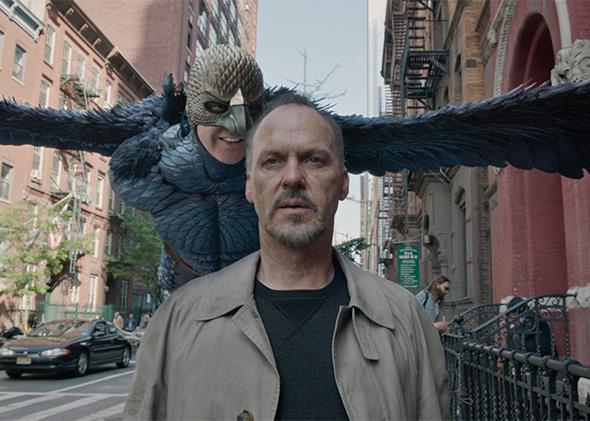The Movie Club is a weeklong conversation about the year in film. Read all the entries here.
Dear David, Amy, and Stephanie,
As our third round of discussion gets underway, it seems like high time to acknowledge the existence of the genre of film that has dominated the world market in recent years and yet, to judge by the conversation so far, occupied only a small slice of our collective imaginations: the superhero blockbuster. As documented in this sober number-crunching analysis by Mark Harris at Grantland, these movies now constitute not only the “tentpole” of a studio’s profitability in any given year, but the entire tent.
I don’t know about y’all, but when Warner Bros.’ DC Comics division—followed shortly afterward by Marvel Studios—announced their upcoming multiyear rollouts of comic book–based blockbusters—32 in all to be released over the next six years, culminating with Cyborg and Green Lantern in 2020—I was hit by a wave of deep existential emptiness previously experienced only while reading the Book of Ecclesiastes. (All is vanity and vexation of spirit indeed.) Suddenly the remainder of the millennium’s second decade seemed transformed into a trackless expanse marked off only by the periodic apparition of dudes in masks and capes. (Yes, also a couple of chicks, including the as-yet-vaguely defined “female superhero Spider-Man spinoff.”) Those announcements—and even the round of knowing wisecracks that followed on Twitter, the gallows wit of the helpless—accomplished something that isn’t easy to do: They made me feel unexcited about the future of movies.
I know there will always be outliers—brave, tough, little indies that find their way onto screens the way small, early mammals managed to evolve while scuttling under the feet of dinosaurs. But the colossal reptiles seem to be here for a good, long stay, and it’s hard to see what box office catastrophe could put a dent in their numbers (though by 2020, we will probably all be rowing kayaks to the multiplex to see Cyborg). I also realize, of course, that comic book provenance is not necessarily the kiss of death for movie quality and that some of these movies may actually turn out to be good. Guardians of the Galaxy, a Marvel spoof that was both a playful riff on the clichés of the genre and a rollicking sci-fi romp, pulled off one of this year’s bigger reversals of my expectations. (The biggest was The Lego Movie, which pulled a full 180, turning me from cynical Lord Business to gung-ho Emmett in the course of a viewing.)
The above is neither an economic analysis of the reign of the comic book film (understood in the broad sense Harris gives that term, as a property created for maximum franchise value) nor, I hope, a declinist jeremiad about that genre’s continued domination of the world marketplace. It’s just a personal admission, as a critic among critics over a glass of virtual whiskey, that I’m saddened by the unequal share of all our limited resources—studios’ money and talent; audiences’ money, time, and imagination; critics’ patience—this entertainment business model uses up. All of the films we’re discussing this week are products in the sense that they’re bought and sold on the global entertainment marketplace, but not all of them were created for the sole purpose of earning back many times their budget worldwide, spawning successful franchises, and enabling marketing tie-ins. It sounds corny—and here I’ll hop up on Amy’s broken soapbox for a second—but the passion and idiosyncrasy of vision that bring distinctive lower-budget films like Obvious Child or Blue Ruin or Birdman into being are qualities that need to be nurtured (and budgeted for, and marketed) in order to keep alive the thing that makes us want to go to the movies in the first place—the thing meant to be housed by the tent the tentpoles are there to hold up.
Thankful as I am for Birdman’s existence in the cinema ecosystem—and much as I enjoyed many things in it, chief among them the return of the dearly missed Michael Keaton—I came away unsure as to why exactly we needed to hurtle queasily down all those backstage corridors with Emmanuel Lubezki’s (admittedly thrilling) hand-held camera in order to tell that particular story, or just what director Alejandro González Iñárritu was finally trying to say about the struggle between Keaton’s narcissistic cape-clad alter ego and the serious theater artist he was so set on becoming. What did Emma Stone’s smile out the window at the end mean? What zone of magical realism or mind-of-a-madman P.O.V. shift had we wandered into? At the time, I appreciated Birdman’s minute-to-minute intensity and formal daring even if it never quite pulled me in on the level of either story or ideas—but looking back on it, WTF was it even about?
Oh mighty Amy, swoop down in your invisible jet and take over from here. We’re running out of words and time, and we’re only just getting started on the movies …
Yours,
Dana
